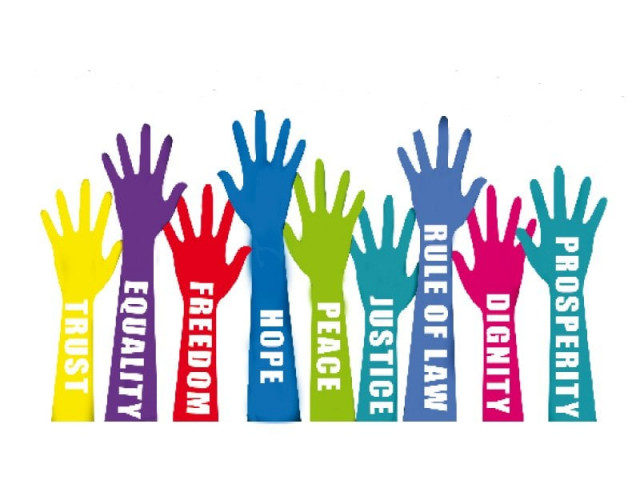Regional solutions: Campaigners call for regional human rights mechanism
Say forum will help tackle issues such as human trafficking, foreign prisoners.

Say forum will help tackle issues such as human trafficking, foreign prisoners. PHOTO: FILE
The Regional Initiative for South Asian Human Rights Mechanism along with civil society organisations and rights defenders have call on Pakistan and other South Asian states to collaborate towards establishing a South Asian human rights mechanism.
Addressing a press conference here on Wednesday, international human rights experts said that the regional initiative in collaboration with the Asian Forum for Human Rights and Development, the Human Rights Commission of Pakistan (HRCP), and Bytes for All Pakistan have unanimously adopted the Lahore Declaration which urges Pakistan and Bhutan governments to expedite and formulate national human rights commissions in their countries and strengthen existing institutions to identify concerns and devise concrete strategies that will consistently develop regional level cooperation and support.
The declaration stresses the need for protection of human rights and fundamental freedoms enshrined in the constitution of Pakistan and other South Asian states. It reminds South Asian states of the commitments made under several international human rights treaties and instruments including regional instruments through the South Asian Association for Regional Cooperation (SAARC). Moreover, it notes initiatives taken by SAARC in the field of human rights in the past.
The South Asian human rights mechanism aims to provide broader adherence of states to human rights. It calls upon the governments to address common human rights concerns including human trafficking, treatment of foreign prisoners, rights of minorities, protection of the rights of migrants and migrant workers, violence against women and children, rights of the disabled, violations emerging from corruption and drug trafficking, terrorism and environmental issues.
Subodh Raj Pyakurel, chairperson of the Informal Sector Service Center, Nepal, said that it was essential for regional governments to come together to address similar issues. “Our solutions are not in New York or Geneva, there is a dire need for home-grown intellectual solutions to our problems,” he said.
Senate Functional Committee on Human Rights Chairman Afrasiab Khattak said the government of Pakistan is pushing for such an initiative and is likely to establish a national mechanism within two months.
Speaking to The Express Tribune, IA Rehman said that while Pakistan and India struggle to agree on a solution to the Kashmir dispute, the platform must address issues from the regional perspective rather than individual issues. He said that Pakistan should learn from the region, rather than just focusing on negative aspects. While monitoring the South Asian countries from Bangkok, Gayatri Khandhadai of FORUM-ASIA said Pakistan and Sri Lanka face the most human rights challenges in the region.
She said that although there is political tension between countries of the region, the platform aims to bring people together. Lauding smooth democratic transition in Pakistan and improving Pak-India relations, Khandhadai said that things are improving while seeing them from the regional lens.
Khandhadai said that while using social media as one of the mediums, regional mechanisms all over the world are going stronger and South Asia needs to take that route. “Human rights if somewhat sorted out will allow peace and stability to follow,” she added.
Published in The Express Tribune, June 13th, 2014.



















COMMENTS
Comments are moderated and generally will be posted if they are on-topic and not abusive.
For more information, please see our Comments FAQ